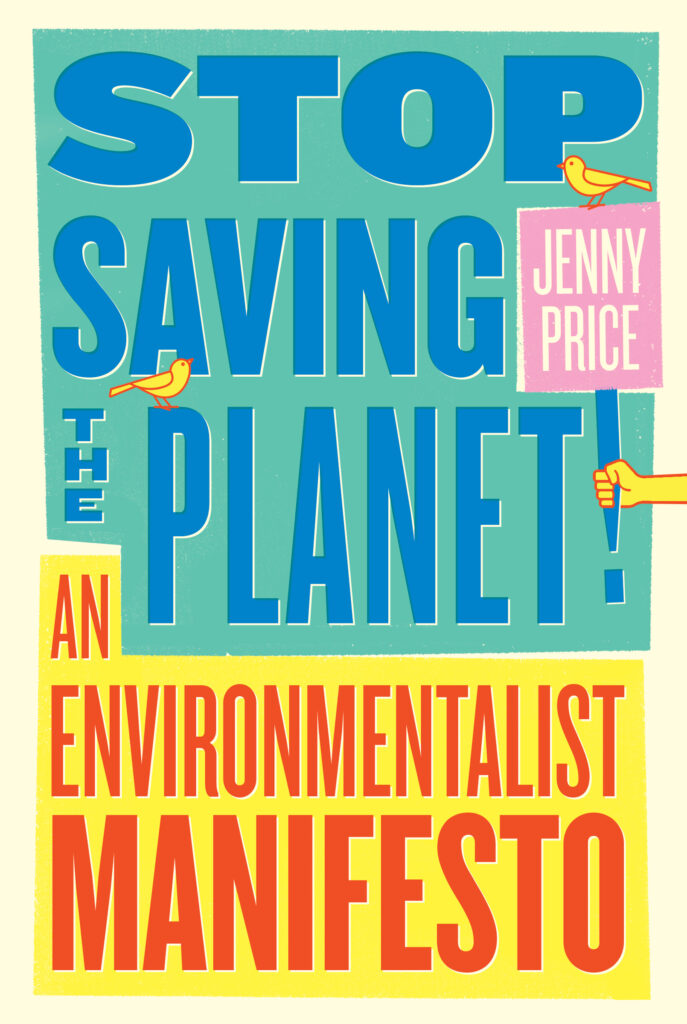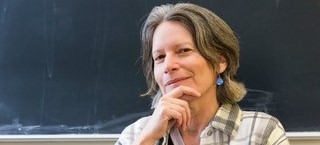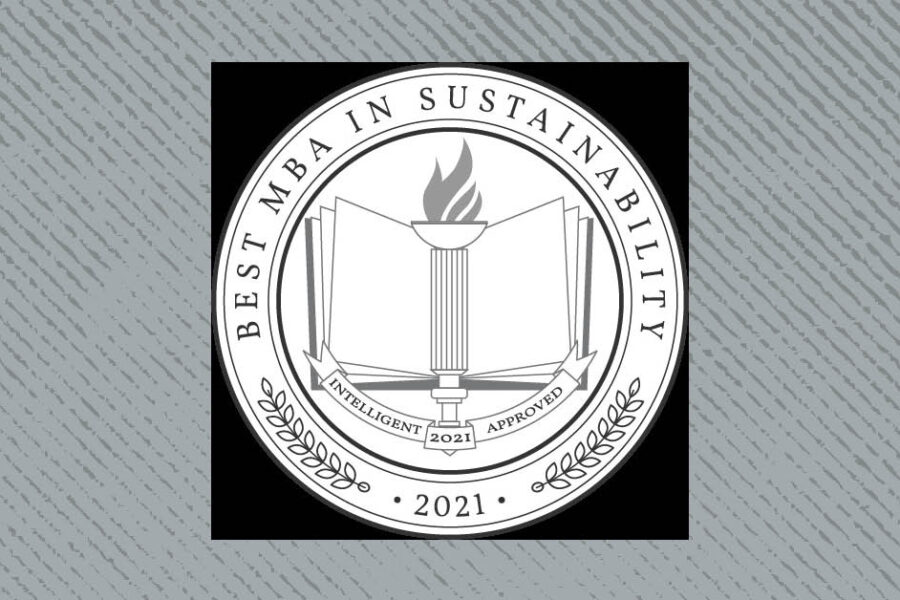
Jenny Price is an esteemed environmental historian, public artist, and author. She has contributed to and taught in our AULA MA in Urban Sustainability and the MFA in Creative Writing programs. Jenny is a former Guggenheim Fellow and NEH Fellow, a research scholar at the UCLA Center for the Study of Women, a senior fellow at the Rachel Carson Center in Munich, and the Barron Visiting Professor in Environment and the Humanities, Anschutz Distinguished Fellow in American Studies, and Atelier Program guest artist at Princeton University. Jenny is also a co-founder of Los Angeles Urban Rangers, an art-performance educational group, and the author of “Thirteen Ways of Seeing Nature in L.A.” and Flight Maps: Adventures with Nature in Modern America.
Now, Jenny Price has published Stop Saving the Planet! An Environmentalist Manifesto.
She is interviewed by Jane Paul, Teaching Faculty and Head of the Undergraduate Concentration Urban Studies as well as Teaching (and founding) Faculty in the MA in Urban Sustainability program at AULA. Jane is an active participant in the curriculum and program development teams. She is excitedly teaching, researching, writing, and developing curriculum on the solidarity economy.
Jane: Thank you for taking the time to talk. The book is beautiful—and inspirational! Was there one event or particular catalyst that started you off on the road for the book?
Jenny: Yes. Well, not just one, but I was living in Los Angeles. Saving the planet, like everything else, gets taken to an extreme in L.A. So I was looking around, and this celebrity had five Priuses in their garage, and I’m thinking on what planet does that make sense? Or this Hollywood mogul is knocking down their huge mansion to build a LEED Platinum, double size. I was trying to figure out why this stuff makes sense to people and why it was compelling. So I thought, I’m going to write a book about 21st-century environmentalism. It didn’t end up quite being the book I thought it would be…
Well, as it turns out, I’m one of these people who only have one idea in an entire career. I never really wanted to be that person, but I am that person. I spent almost 95% of my career talking about this American idea of nature out there and how it’s problematic and how it allows you to ignore your everyday interactions with nature, how we change nature to live. I didn’t think that this new project would take me back to that, but ultimately the more and more I thought about the five Priuses—it took me right back to this incredibly powerful way of talking and thinking about nature. And then, it became kind of an excavation of the logic of “save the planet.”
Jane: What part of the book makes you the happiest?
Jenny: Well, I could pick out one of the 11 Reasons. I’m probably proudest of the 9th Reason about carbon trading: You wouldn’t create public markets to trade in cancer, congenital disabilities, and death! I think carbon trading is incredibly difficult to understand—it’s Byzantine, really insanely complicated, and it has to be because they’re trying to make an economy do something that it’s explicitly designed not to do. They’re trying to use markets that inherently ignore environmental costs to try to tackle serious environmental problems. Before publication, I sent [this section] off to an environmental law scholar.
He said, “I don’t agree with you about carbon trading and if we could just get it to work properly….” But I don’t think it will ever work properly because profit-maximizing markets don’t maximize sustainability. California launched its cap-and-trade program eight years ago—eight years! So how many more years do we have to keep pretending that this is going to work?
Jane: That is a great example of the adage—trying to solve problems in the same way that got us into the mess in the first place!
Jenny: Using the problem to solve the problem, which is nonsense. I’ll say it bluntly because the book is blunt. If I could pick one of the 39 ways to Stop Saving the Planet, it would probably be #18: Environmentalist Golden Rule—to be an IMBY: “Don’t help stash industrial toxins & waste in other people’s neighborhoods that you wouldn’t have them stash in yours.” If you want to know what you personally can do, what you should do, it pretty much leads you to all the other 38 ways—to actually clean up the worst environmental messes instead of all this other nonsense.
Jane: Then the other question on the same tip, what part of the book or process was the most challenging?
Jenny: That’s easy—first, the introduction and the first Reason (Environment is in here). If it hadn’t been for the intro, I would have published the book two or three years ago!
Any sane person would have given up long before I did. I had to pack a lot of argument into a very small space to make it concise as possible and accessible and readable. I still think of it as probably the piece of the book that’s the least accessible. But I got it to a point where I thought, okay, this works. Nothing in my career has ever been so troublesome, a tiny fraction as troublesome as trying to figure out how to present that argument, an argument I’ve been making my entire career. So it’s not like I had to figure out the argument; it was how to explain the argument in a concise way that also set up the rest of the book. And it was enormously difficult.
Jane: Right. The first couple of pages have to somehow magically change people’s entire perspective so that they will spend the next two hours reading it and then taking that out the door.
Jenny: It’s what I hope I have to contribute, more of a cultural take, a cultural critique of environmentalism. And unless I explain this, then everything that follows is less persuasive. I had to explain this “save the planet” logic; what makes all this crazy nonsense compelling to people.
Jane: Writing a book, first of all, is extremely challenging! But making it accessible is the narrative, the message!
Jenny: In some ways, I knew the argument too well. The trouble with thinking about nature as a world Out There— and I had to figure out how to make it work for this book.
Jane: My favorite action in the 39 Ways section is Redefine Economy, which I’m sure you’re not surprised to hear. What is the critical message in Redefine Economy for readers to get?
Jenny: Our economy is foundationally environmental. When you talk about economy and environment as separate things…well, the argument that even a lot of environmentalists make— that we have to “balance the needs of the environment with the needs of the economy—is utterly insane. You have to ignore the standard definitions… our economy, how we change environments to provide our needs and wants, and how we distribute the benefits and the costs. So the foundation of a democracy is how sustainably and equitably we change environments.
Jane: We don’t need some guy from Harvard. We need people who are living with that problem to see themselves as economists. Anyway, the last question is, what is the question you wish everyone would ask you?
Jenny: Why do we have to stop saving the planet?
Jane: If I asked you, how do we stop saving the planet, what would you say, other than read the dang book.
Jenny: Stop blaming individuals for systemic problems and stop praising individuals for systemic problems. Think bigger about the economy and environment, and act bigger.
Jane: That’s beautiful. And brilliant. Thank you.






